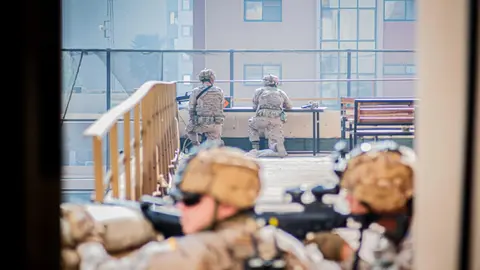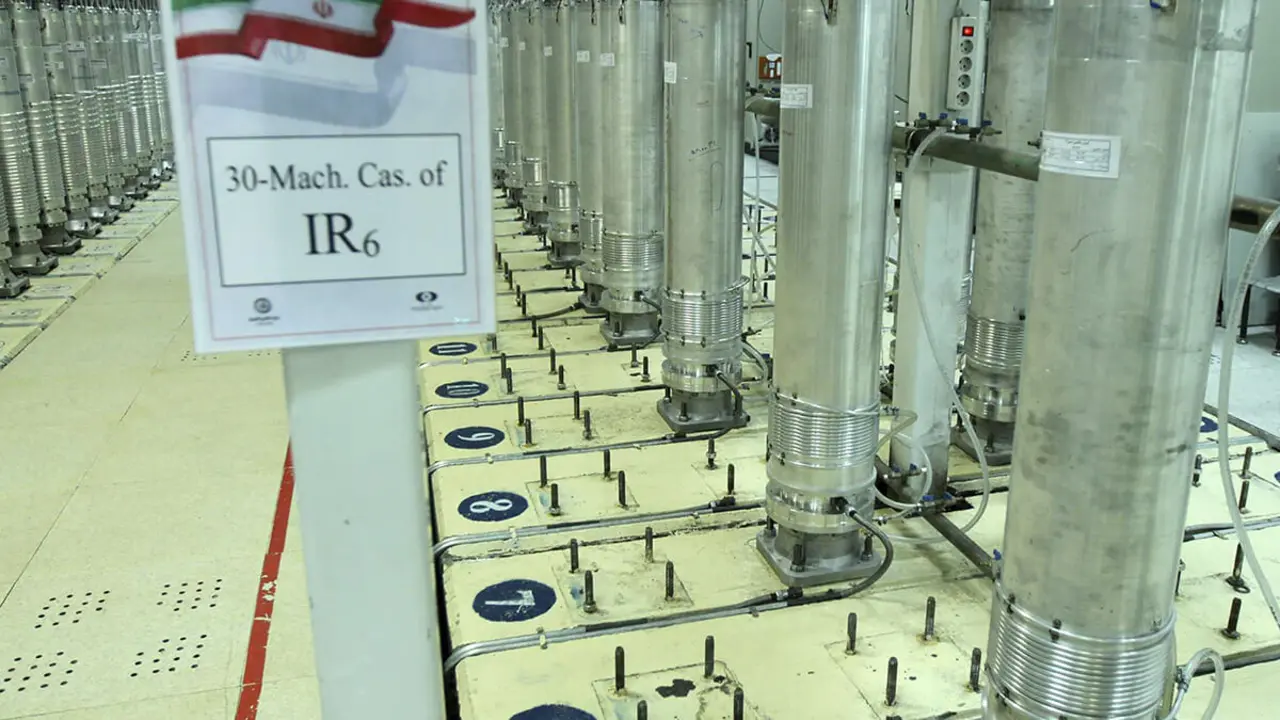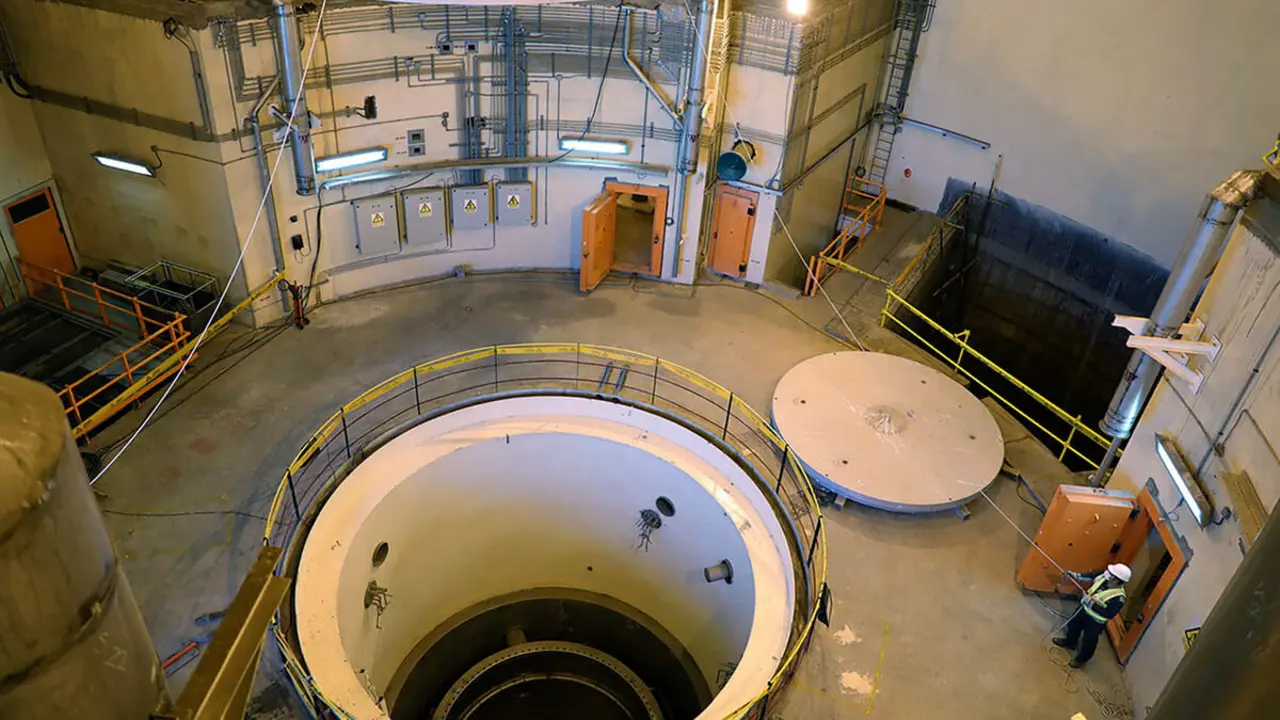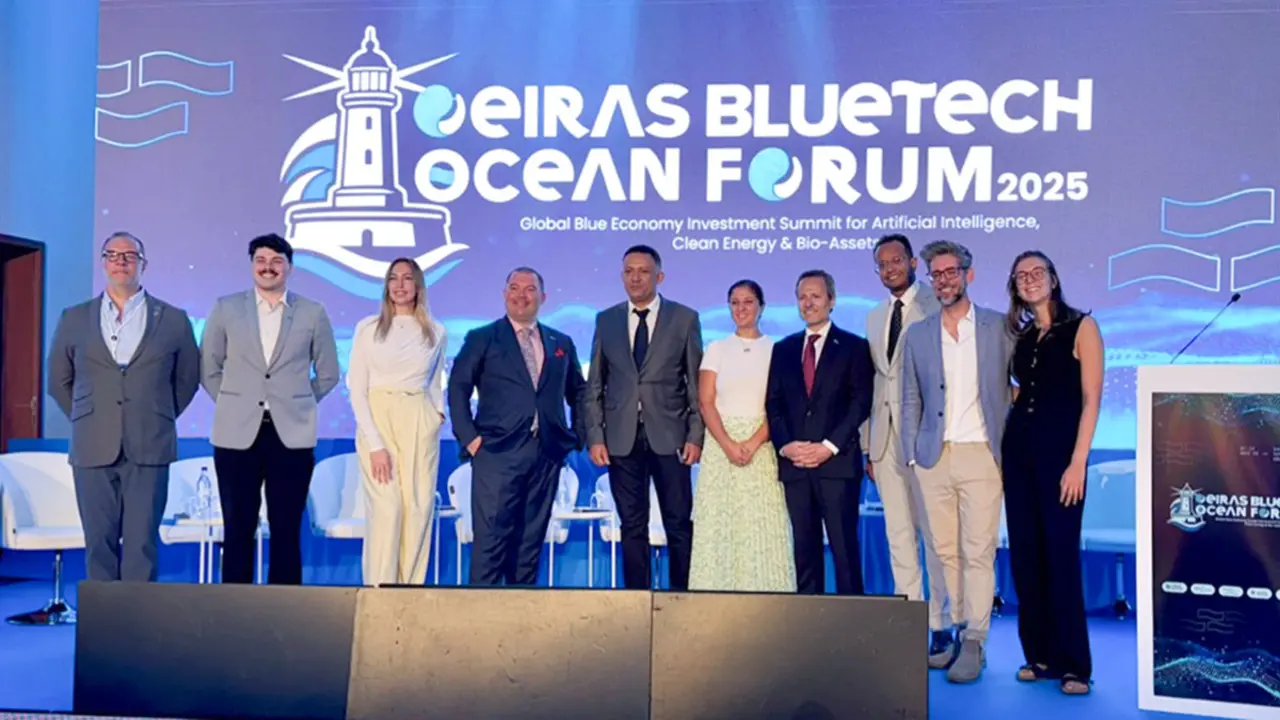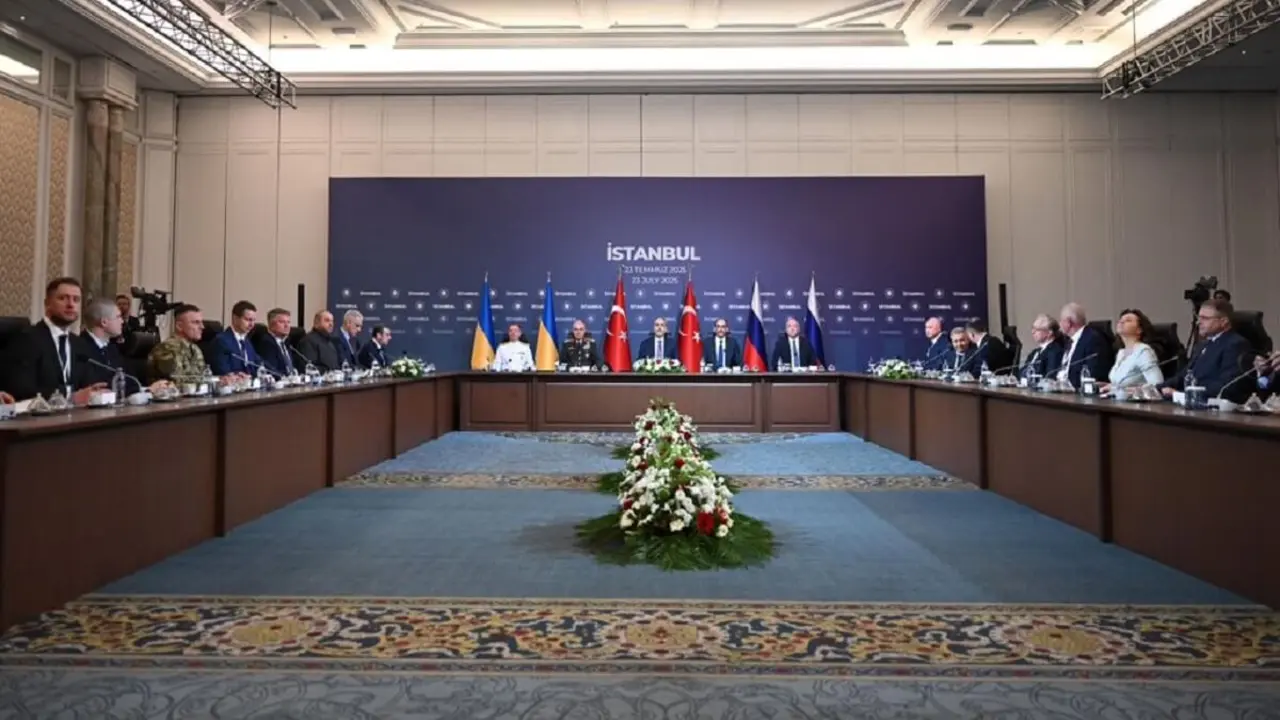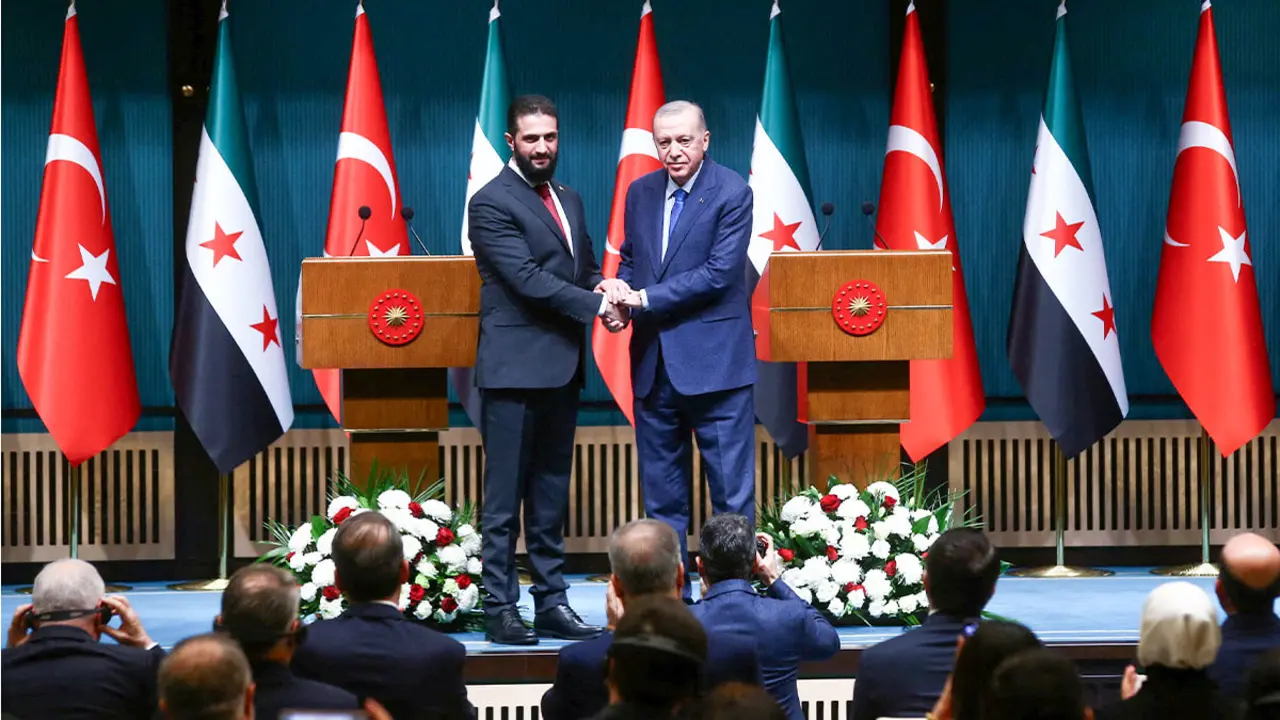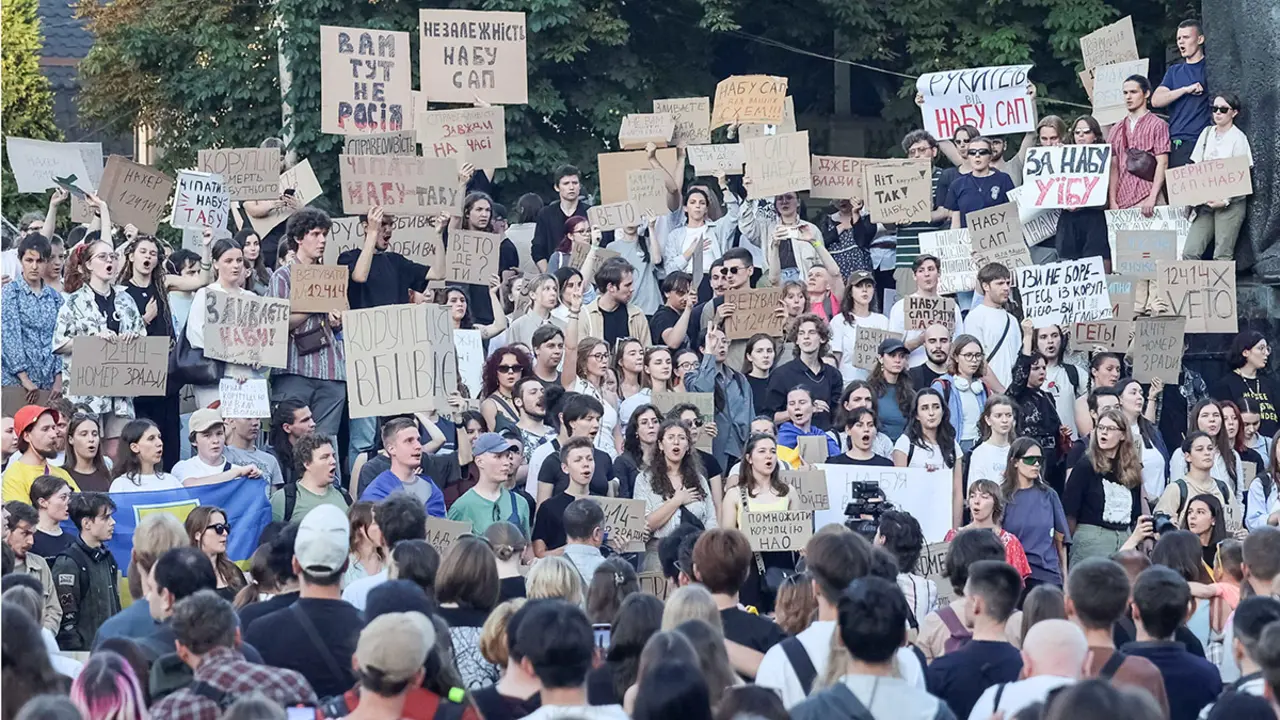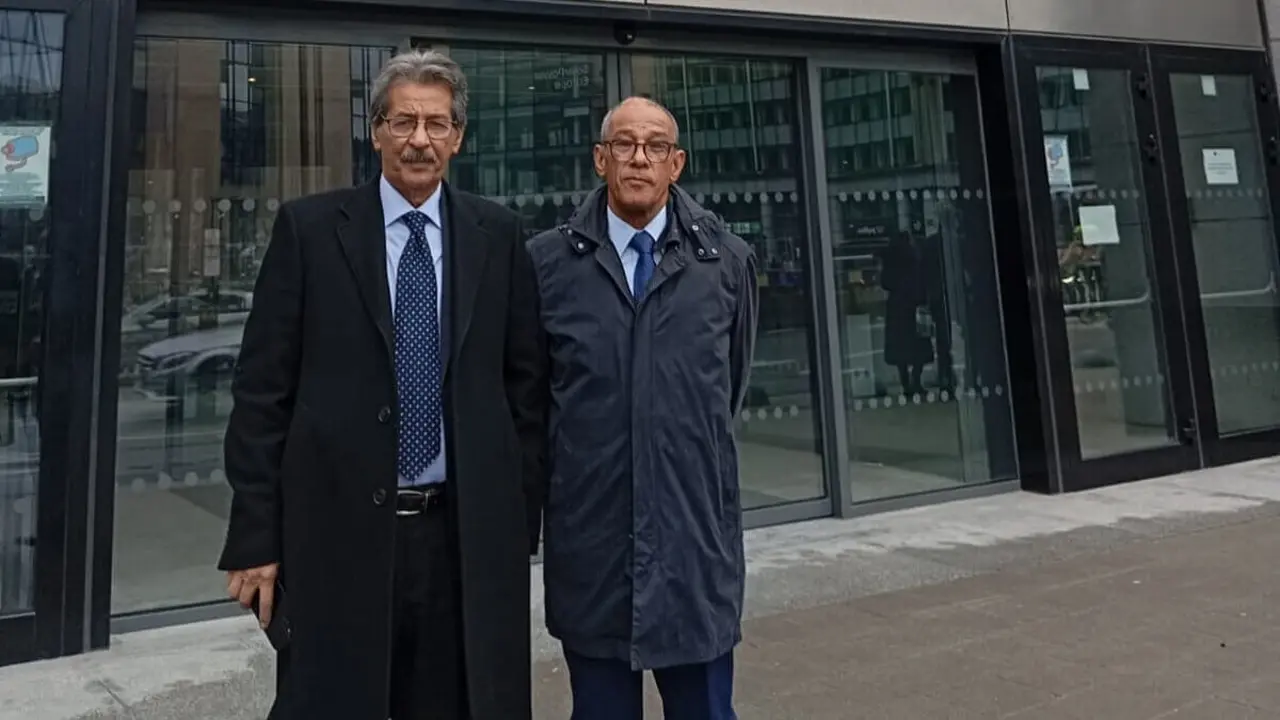"The weaker our democracies are, the more incapable we are of contributing to world peace"

The world is very convulsed, almost topsy-turvy. The concern about it is profound and I don't know to what extent it is possible that a more universal conflict could break out...
It is deeply worrying. I had a very long and interesting conversation with a colleague and friend, an ambassador to Spain, whose name I will obviously omit, with this very origin: that the world is very unsettled and very unstable. And he did an interesting exercise: he told me that, visiting a media outlet, they gave him the front page of the day of his birth, and that year Paris was burning, there was the whole pre-revolutionary atmosphere in Europe, thousands of dead in the Vietnam War...
The truth is that yes, the world has been in turmoil many times, but now we have a multitude of convulsions of different intensities, which are converging in a very short time, and this has not been seen before. We are also seeing a weakening of democratic institutions in countries that had never before doubted their political stability or had problems of credibility in their institutions. However, at the moment a part of their populations, whether from the extreme right or the extreme left, are questioning the legitimacy and viability of the institutions of their democratic system, of their democracies. Added to this is the fact that the Ukrainian conflict is still wide open, with a very serious crisis in the supply of arms, defence systems, anti-missile missiles, anti-drone missiles and ammunition to Ukraine. And everything is aggravated by the prospect of a possible Trump victory, because we know that the candidate for the US presidency is openly and openly opposed to continuing aid to Ukraine.
To this must be added the instability in some countries of the European Union, supposedly the most advanced club of democracies in the world and the beacon of political stability and democracy, which now has very serious problems in different countries, including our own. Not to mention countries where extremism is taking root in a very worrying way. But I am particularly concerned about the bloodthirsty consolidation of tyrannical regimes in different parts of the world. I fear, moreover, that the passivity we are seeing, which is being confused with a politics and a pragmatism that are not such, but simple cowardice and renunciation of principles: to stop putting pressure on Venezuela to recognise the victory of the opposition; to stop putting pressure on Nicaragua, which has become a barbaric and oppressive regime, as rarely seen in the history of Latin America; to completely forget the demands for democratisation and openness in Cuba; to stop pointing an accusing finger at Iran's permanent destabilising interference in the region, which has no consequences because the sanctions have been lifted....
Moreover, we are trying to present a diplomatic success such as the prisoner exchange as a universal panacea. This is a consequence of the tyranny of the Russian regime: as they use the citizens of our countries as hostages, in exchange for securing the release of hostages, we are releasing very dangerous criminals and spies.
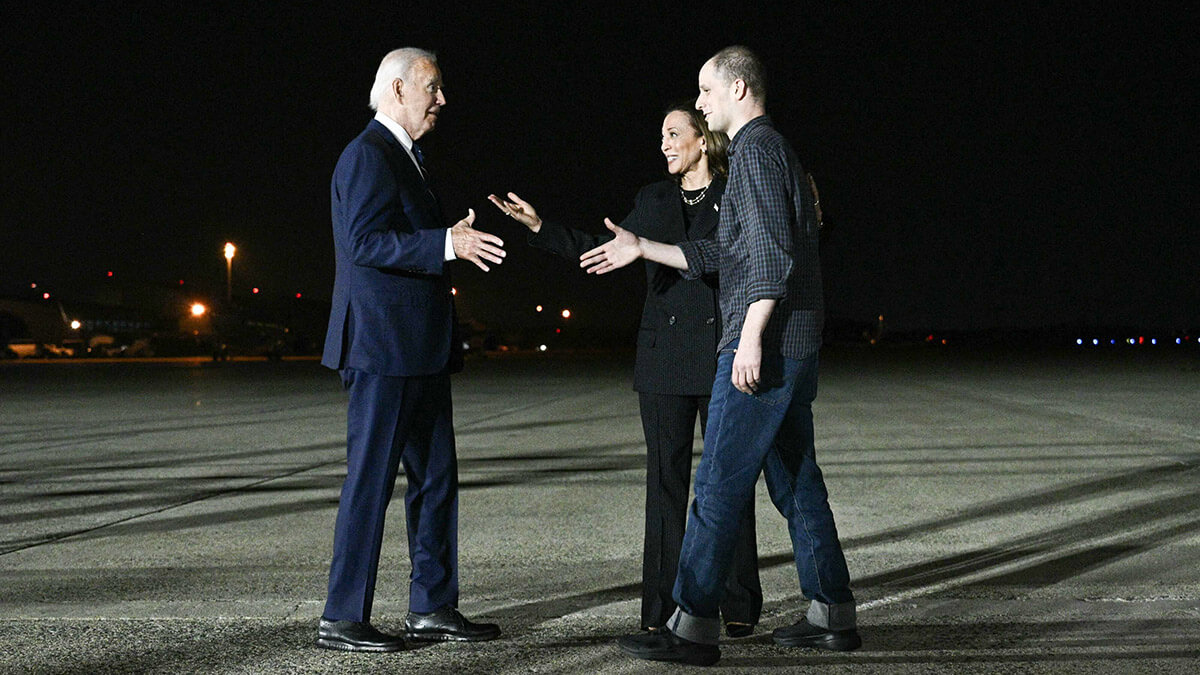
Fake news, the support of certain sectors of the extreme left for a goodwill in Europe that hides a lack of respect for principles and values, as we have seen at the opening ceremony of the Olympic Games, further weaken the liberal democracies, consolidated after the Second World War, and which have provided so much progress, stability and security over all these years. Do people not realise that what is really at risk is our daily lives, the security and comfort we have had up to now?
Unfortunately, those of us who live in a democracy, especially the younger ones, who have never had to question that we live in a regime of freedoms, with one of the most advanced constitutions in the world, despite the fact that some political parties present here are bent on destroying it or questioning our system of democratic values, do not realise that, as rarely before and much more than in '68 or the 1970s, it is democracy itself that is in danger. There used to be an enmity of systems: the Soviet bloc was the enemy of the democracies, but the democracies, although they had enemies within, encouraged by the KGB, were still mainly external enemies with a little internal support. Today we have instability rooted in our midst, in our democracies. And it has to be said very clearly: the weaker our democratic system, the weaker our countries, which have been the beacon of stability of democracy for the last century, the more we will be unable to contribute to global peace and stability, to the spread and consolidation of democracy in countries that are today ruled by authoritarian, dictatorial and oppressive regimes. And the whole geopolitical reality that we are analysing at the moment is very clearly catalysed by the weakness of Western democracies. The left has been completely hijacked by the far left and is adopting their radical ideology, their extremist and self-destructive postulates, and they are only moving in leaps and bounds towards far-left authoritarian regimes.
What about Vladimir Putin?
When we analyse Vladimir Putin, unfortunately we have to say that both extremes have him as a saviour. On the one hand, the extreme left and the not so extreme left see him as a kind of post-Soviet reincarnation of the communist empire, which is the best and most effective enemy of the West. And on the other hand, on the right we are seeing that the moment any minimally thoughtful, balanced and moderate analyst criticises Putin or his regime, they go for the jugular and criticise him. Incomprehensibly, a good part of the extreme right considers Vladimir Putin the saviour of the essences of white, Christian Europe, which is utter nonsense. First, because Europe is diverse, multi-racial, multi-cultural and multi-religious. It is an aberration to continue to be determined to expel from the heart of Europe anyone who is not white and Christian.
With regard to immigration, is it essential for the countries of the European Union to reach a serious immigration policy that guarantees coexistence and is firm enough to prevent insecurity?
Without a doubt. In the 1990s, when I was in the Ministry of the Interior as cabinet director, I had to coordinate the area of European affairs, international affairs... There was a hasty and cowardly transfer to Europe of immigration policies by many of the larger states, some of which were directly involved in irregular and disorderly immigration, such as France, Germany, Belgium, Holland, Italy..., but it was also our turn, and Spain was one of those that supported that hasty transfer of immigration and asylum policies to the European Union, with few solid foundations.
It was all in order to get rid of the stigma of being the repressors, the ones who close the borders. It was said that you cannot put gates to the countryside, you cannot close off prosperity to those who come looking for a better life, that no human being is illegal. There is no possibility of sharing prosperity and democracy if a serious immigration policy is not urgently put in place and this surely requires that the states take back certain responsibilities that they once hastily handed over to the European Union and that they understand that this is a collective problem. Even if you are far from the southern or eastern borders of Europe, this does not mean that the problem is not yours, especially in an open border regime such as Schengen. You can perfectly well go from Spain to Romania or the other way round, or go without any passport control from Spain to Norway, which is not a member of the European Union, or from Spain to Iceland, which means that all countries have this problem and we all have to be aware that we cannot allow demagogy to become part of the discourse on immigration.
Secondly, we are in favour of multiculturalism and diversity in Europe, but not of the imposition of minorities on majorities. Those who come to live among us must accept the rules of democratic coexistence: equality between human beings also means equality between men and women, between old and young, between people of different sex, race, religion or sexual orientation. Whoever does not accept this is not accepting democracy. You cannot come to Europe to have a better job, to have social security, but not accept that women, gays or people of other races or religions have the same rights. This is the way it is and to say so without complexes is not to be an extremist, but a convinced democrat.
And a third thought on irregular immigration: we cannot start questioning the details of what the navy can or cannot do. If surveillance on the high seas is considered to be the competence of the navy, this implies all the risks and threats to our states, including that of the inhuman mafias that traffic in human beings. This is a crime and a destabilising element that must be controlled by the navies of the European Union and NATO. We need to address much more essential, much more general issues, we need to be much more strategic in the design of immigration policies and much less tactical.
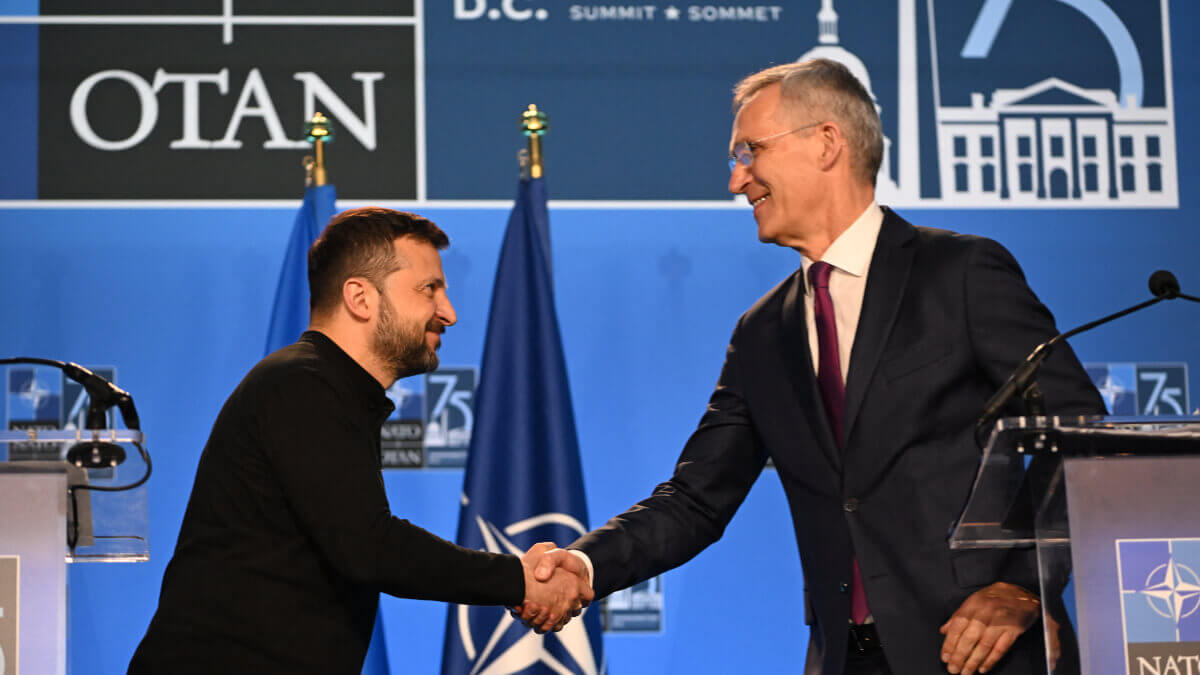
It is 25 years since Mohammed VI acceded to the throne in Morocco. As a connoisseur of Morocco, what is your assessment of the years of Mohammed VI's reign?
These are different times from those of his father, Hassan II. The reign of Hassan II has several stages: it is not the same at the end of the 1950s, in the 1960s, in the 1970s, in the 1980s or just before he died. There is an obvious evolution, slow and unambitious for many, but let us look at the extraordinary transformation that has taken place in Morocco in the last 25 years. It is a social, economic, socio-economic and cultural transformation. In our country, the role of women in Moroccan society, which is extraordinarily important, is often ignored. We are not only talking about the wealthy households: even in the most rural or remote areas, grandmothers and mothers, when they reach a certain age, are the mainstay of families, they are the backbone of this society.
We must also mention the development of infrastructures, the automobile industry, the aeronautical industry, the ports, the tourism sector, which is currently extraordinarily important and has a weight relative to its GDP that is not very different from that of Italy or Spain.
This social evolution can be seen in many areas. For example, Morocco had women generals in operational positions in the armed forces long before Spain; the flag carrier, Royal Air Maroc, has more women commanders and pilots than Iberia, a company that is practically a third of Spain's in terms of the number of aircraft and personnel. In short, the country has made an undeniable qualitative social leap forward, and not to see it is to deny reality. Morocco is not a democracy like Switzerland or France, but it is the closest thing to a liberal democracy in the Arab-Muslim world. Someone tell me another country where there are municipal, regional or national elections that have the blessing of world neutral observer political parties and that has a party system ranging from the extreme left to the extreme religious right, and that all have been in power in one way or another, participating in coalitions, holding ministries, presidencies of regions or even the mayoralty of big cities like Marrakech or Casablanca.

Do you think that all these advances are not sufficiently valued in Spain?
In Spain, two criticisms come together that are, in my opinion, incompatible: if King Mohammed VI is a dictator, why is he accused of not having a hand in the affairs of the state? Because if he is a dictator, he would have nothing but his hands in the affairs of the state. It is the government elected by the ballot box that rules in Morocco. And, on the other hand, there is a pathological fear on the part of some political sectors of the extreme right and the extreme left of a potential enmity with Morocco. The closer Morocco gets to the West, be it the United States, the United Kingdom, France, Germany or the State of Israel, the less risk Spain runs. The only risk Spain would run would be in the event of serious political, strategic and geopolitical instability in the Maghreb region. An unstable Morocco that would end in chaos and misrule, without this monarchy that is a guarantee of stability. It is not the worse the better for us, which has at times been the policy applied by Spanish political parties towards Morocco. The more stable it is, the better for us; the more prosperous it is, the better for us; the more the country evolves and the closer it comes to a fully-fledged democracy, the better for us. So let us be balanced and reasonable, while pointing out the country's shortcomings, which it obviously has. One of them is the deterioration of public education, which was an extraordinary system of social permeability until a few years ago and which must once again become the social ladder that it once was and which lifted many Moroccans out of poverty and turned them into personalities in their country, in France or in Belgium. And hopefully in Spain, in a short time.


